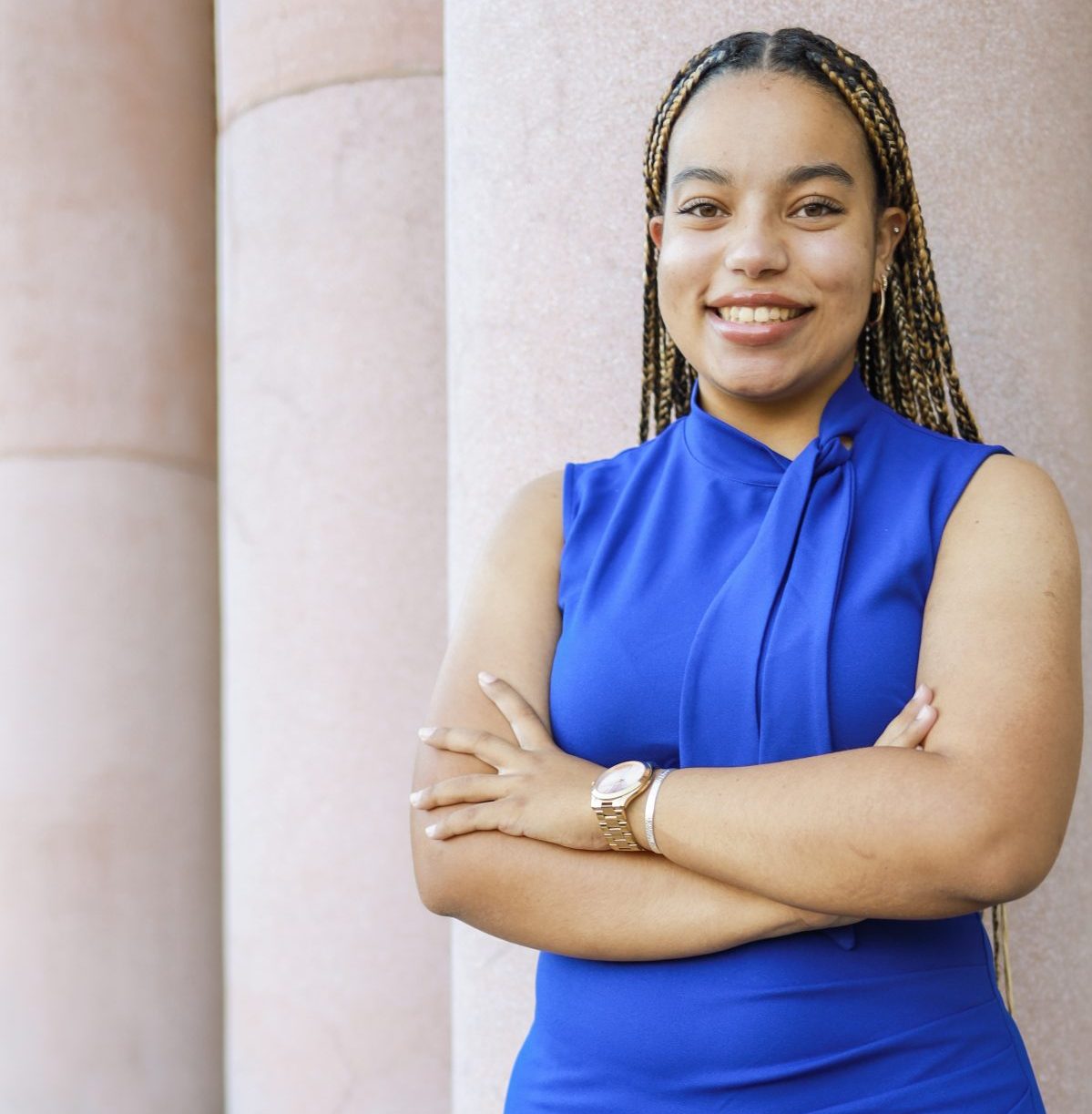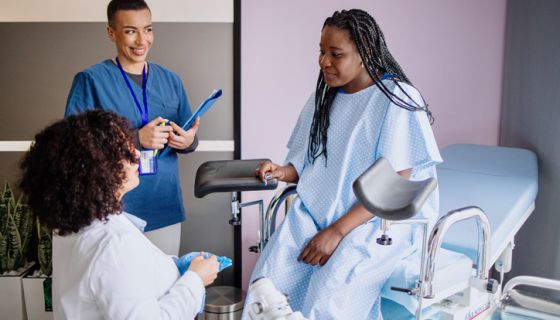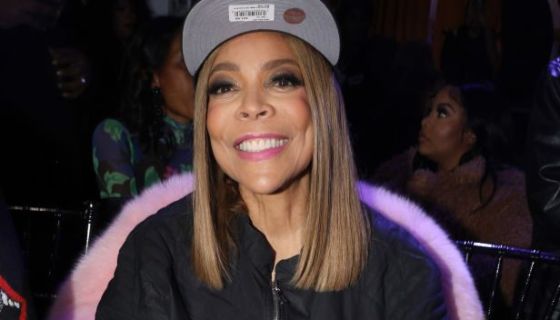
Courtesy of Amber Wynne
Menstruation is a component of reproductive health and for menstruating people, it isn’t always easy to navigate—especially if an individual has limited resources and access. Maxi pads, menstrual cups, pantyliners and tampons can be hard to come by when economic challenges exist. Having to make a choice between food and shelter and period products is a tough one but probably a no-brainer that leaves many menstruators without items to get them through a period cycle. Thankfully, Tampax is committed to helping ensure there’s equal access to period care products and through the Tampax Flow It Forward project, the brand donated 4,847,804 tampons in 2021.
—And there are reproductive activists like Amber Wynne who advocates for people who suffer from Period poverty. Wynne is a graduate of Hampton University, who is fighting #PeriodPoverty and making reproductive health products available for students on her campus.
Wynne’s work helps spread that information and more. Her early education in reproductive health is what alerted her to the lack of knowledge surrounding the topic. Wynne credits her mother with helping educate her as a young child, rendering the usually taboo topic a normal lane of discussion. Wynne’s knowledge and initiative presented her with an opportunity to help her historical Black college community in a tangible way. MADAMENOIRE caught up with the young advocate to learn how her activism aids in getting better access to period products.
MN: Lately the conversation around reproductive health for Black women has become more prevalent and inclusive of periods. What put the conversation on your radar?
Amber Wynne: I realized that I am one of the most educated people in the room when it comes to my reproductive health, thanks to my mom. She showed me how to put a pad on a teddy bear at a time when my peers were not even having conversations about their period.
[Knowing] that we, as Black Women, are hit the hardest when it comes to reproductive health disparities. I wanted to step into this space because I realized that some of my classmates needed someone to advocate for them, in that regard. Since my University was not providing menstrual products for free, I thought I would take a stab at it.
Did you begin advocating in the collegiate space? How did your work take off? What did it look like?
I understood who I was going up against. Hampton University is a conservative institution. I knew anything about reproductive health was going to be a push for them. I surveyed the student population and then drafted a bill in the Student Senate that passed with a unanimous vote across the board. From there, I remodeled the Emergency Reproductive Health Hotline to include free menstrual products.
The hotline covers pregnancy tests, emergency contraception, menstrual products, condoms, education resources, etc. During Covid, a student could call the hotline and I could send them free menstrual products as long as they were able to pay the shipping costs. Now that we are back on campus, I’ve partnered with Student Activities and we were able to get the restrooms on campus stocked with menstrual products which is a huge feat because I did not think I would be able to get it done before I graduate.
A factor we do not talk about when we talk about period health is costs at its most basic level. Talk to me about period poverty.
When we think about eradicating period poverty it’s not me simply handing you a Tampon or pad because products will disappear. You are going to use the pad but what happens afterwards?
So, there is a lot of education that goes behind it. In Texas, there was a bill being introduced and a lot of voters did not realize that their representatives were voting on a bill to eliminate the tampon tax in their state. Because of a billboard, people came together and had a rally. People realized, wow, this is really important.
How do you believe your work has made a difference?
I’ve had people call into the hotline and say, “if you don’t reach me in the next thirty minutes, I might not be able to go to class.” You should be able to get menstrual products in a public restroom. People should have better access to a tampon than a condom. For most of us, sex is a choice but your period is going to come either way. People need access to those resources.
How does the work continue once you move on?
I am on Period’s Youth Advisors council and I am also on their board of directors. I bring a lot of perspective as an HBCU student and product of immigration. A lot of the advocacy work that I do is educating high schoolers and other college students about how to create these models on their campuses and how to make this work accessible.
How do we extend the conversation about Reproductive health? What conversations should we be having?
First and foremost we need to acknowledge the historical context of a healthcare system that has not always been kind to our bodies. And when I say “our bodies,” I mean Black people. [Many] of us have either heard through the grapevine or experienced some form of medical racism. As someone who knows how to advocate for themselves in the healthcare system, I know the medical jargon. I was still displaced because my white physician would not listen.
It is a privilege to be able to choose a physician, but if you can, your first meeting with them should be a conversation. We should get an understanding of their background and practices. Physicians are in your very intimate space, they should know you and you should feel comfortable with them.
RELATED CONTENT: Things You Didn’t Know About Periods











